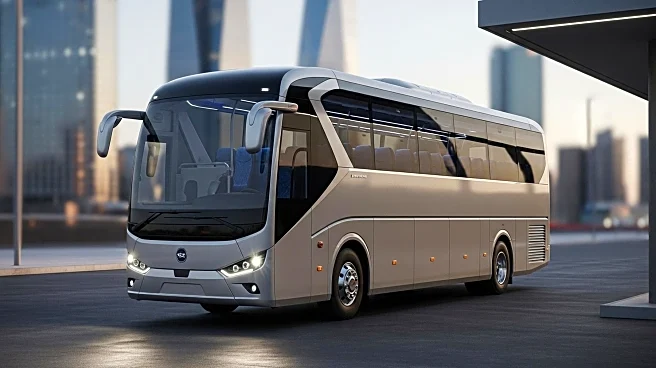What's Happening?
Scania has introduced its first battery-electric coach platform at Busworld Europe 2025, marking its entry into a competitive market where Volvo and MAN have already established range leadership. The new high-floor BEV from Scania offers a range of up to 600 km on a single charge, which is competitive but falls short of Volvo's 700 km and MAN's 650 km offerings. This move comes as the electric bus and coach market is projected to grow significantly, reaching a valuation of $37.5 billion by 2030. The growth is driven by regulatory pressures and increasing demand for zero-emission buses, with countries like Denmark, New Zealand, and the Netherlands mandating 100% zero-emission bus procurements by 2025.
Why It's Important?
Scania's entry into the electric coach market is significant as it highlights the rapid maturation of the electric vehicle segment, particularly for long-distance travel. The company's strategy includes not only the vehicle but also the necessary charging infrastructure, which is crucial for adoption. This comprehensive approach may help Scania compete despite its later entry and shorter range compared to competitors. The development reflects broader trends in the transportation industry towards sustainability and zero-emission solutions, which are increasingly becoming regulatory requirements. The success of Scania's platform could influence market dynamics and encourage further innovation and investment in electric vehicle technology.
What's Next?
Scania's future in the electric coach market will depend on its ability to leverage its established service infrastructure and brand reputation to offset its range deficit. The company plans to target medium-distance inter-city routes and other applications where its 600 km range is sufficient. The success of this strategy will be determined by how well Scania can meet the needs of operators who prioritize vendor relationships and service networks over maximum technical specifications. As the market continues to grow, Scania's ability to adapt and innovate will be crucial in maintaining competitiveness.












